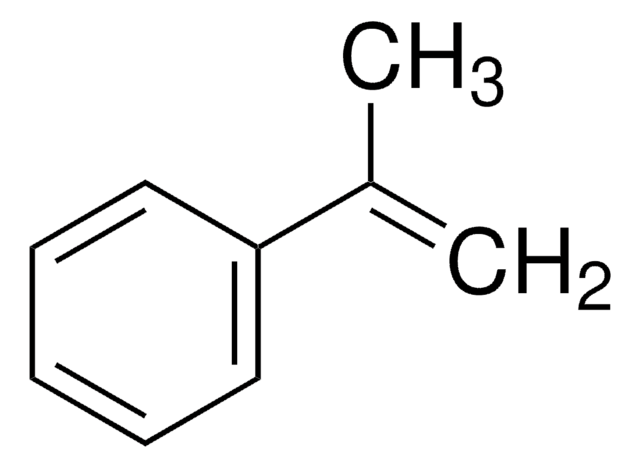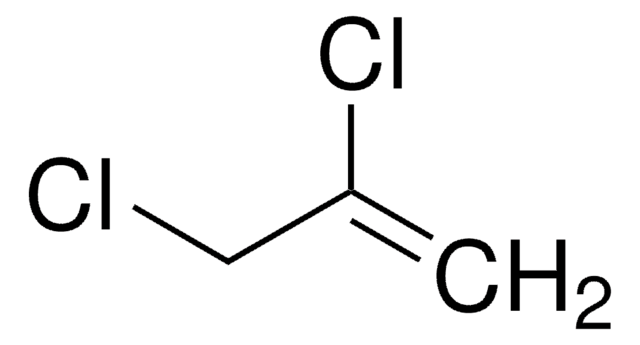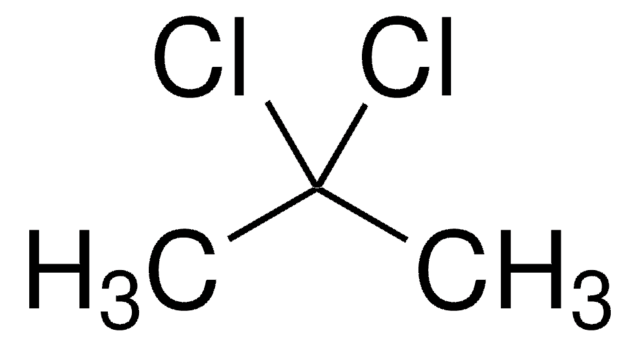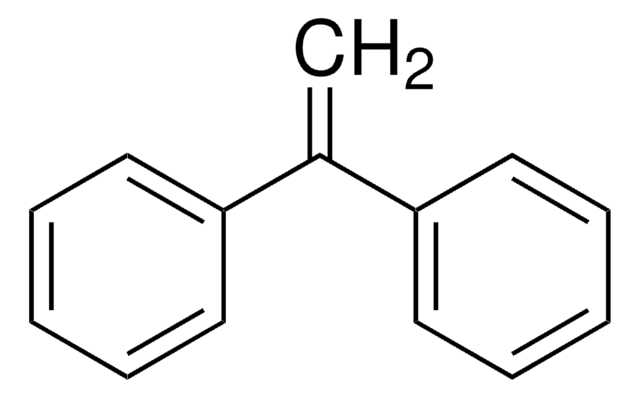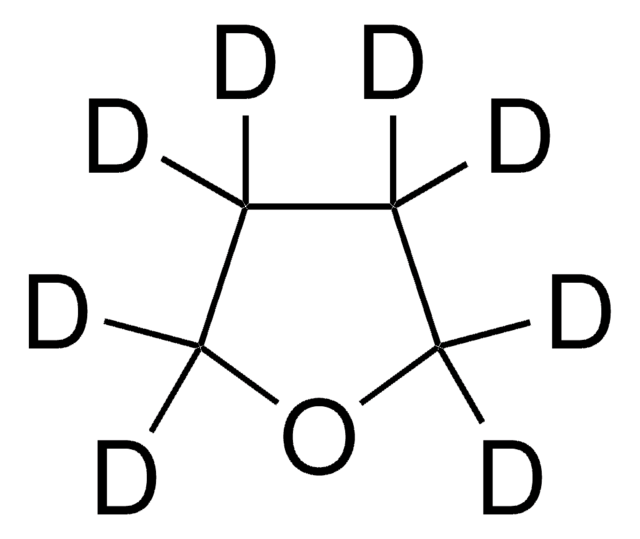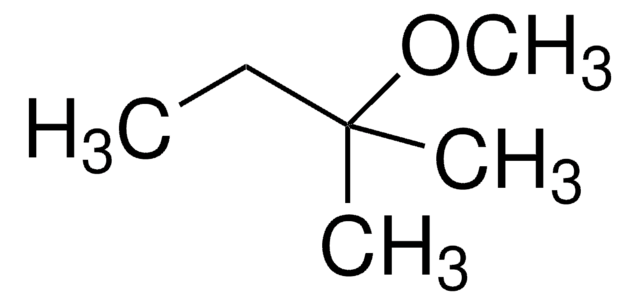377414
cis-1,3-Dichloropropene
97%
Synonyme(s) :
(Z )-1,3-Dichloropropene, cis -1,3-Dichloropropylene
About This Item
Produits recommandés
Niveau de qualité
Pureté
97%
Indice de réfraction
n20/D 1.4675 (lit.)
Point d'ébullition
104 °C (lit.)
Densité
1.225 g/mL at 25 °C (lit.)
Chaîne SMILES
ClC\C=C/Cl
InChI
1S/C3H4Cl2/c4-2-1-3-5/h1-2H,3H2/b2-1-
Clé InChI
UOORRWUZONOOLO-UPHRSURJSA-N
Vous recherchez des produits similaires ? Visite Guide de comparaison des produits
Catégories apparentées
Mention d'avertissement
Danger
Mentions de danger
Conseils de prudence
Classification des risques
Acute Tox. 3 Dermal - Acute Tox. 3 Inhalation - Acute Tox. 3 Oral - Aquatic Acute 1 - Aquatic Chronic 1 - Asp. Tox. 1 - Eye Irrit. 2 - Flam. Liq. 3 - Skin Irrit. 2 - Skin Sens. 1 - STOT SE 3
Organes cibles
Respiratory system
Code de la classe de stockage
3 - Flammable liquids
Classe de danger pour l'eau (WGK)
WGK 3
Point d'éclair (°F)
75.0 °F - closed cup
Point d'éclair (°C)
23.9 °C - closed cup
Équipement de protection individuelle
Eyeshields, Faceshields, Gloves, type ABEK (EN14387) respirator filter
Faites votre choix parmi les versions les plus récentes :
Déjà en possession de ce produit ?
Retrouvez la documentation relative aux produits que vous avez récemment achetés dans la Bibliothèque de documents.
Les clients ont également consulté
Notre équipe de scientifiques dispose d'une expérience dans tous les secteurs de la recherche, notamment en sciences de la vie, science des matériaux, synthèse chimique, chromatographie, analyse et dans de nombreux autres domaines..
Contacter notre Service technique

